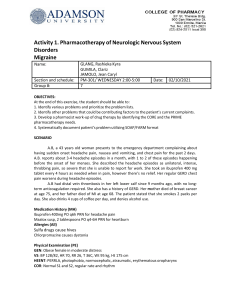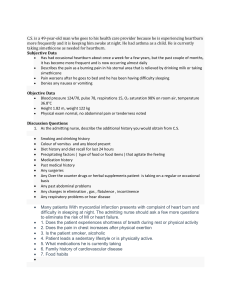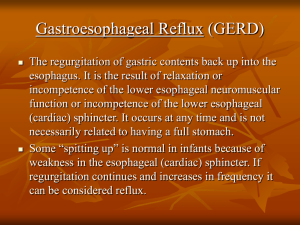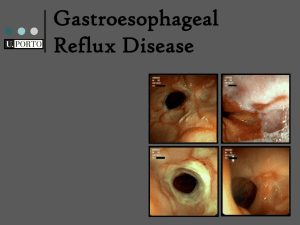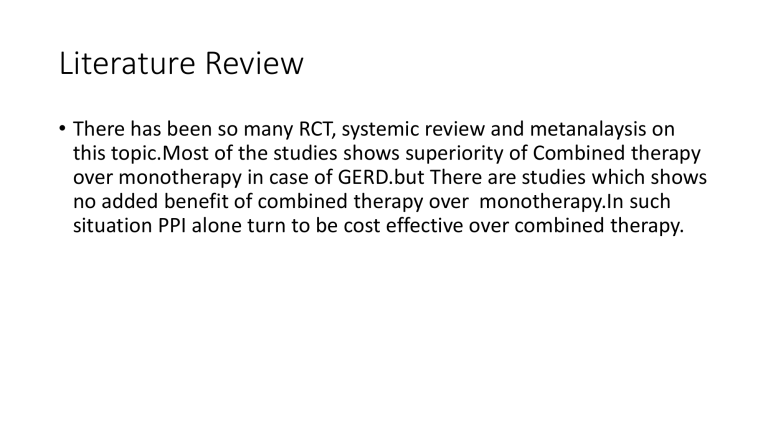
Literature Review • There has been so many RCT, systemic review and metanalaysis on this topic.Most of the studies shows superiority of Combined therapy over monotherapy in case of GERD.but There are studies which shows no added benefit of combined therapy over monotherapy.In such situation PPI alone turn to be cost effective over combined therapy. continue • A systemic review and meta analysis of RCT conducted by Nurfatahu Jamani et al shows a significant difference in reduction of symptoms by combined therapy over PPI monotherapy: Heart burn(MD =-1.73,95%CI from -2.67 to 0.78,P<0.00001) Reflux time(MD=-1.82,95%CI from -2.36 to 1.28,P=0.0002) Frequency(MD= -7.42 from -10.26 to -4.59,P<0.0001) • KY Marakhousi etal phase 4 open label ,RCT shows mean VAS score for heartburn severity as 1.7 ± 3.30 and 9.1 ± 6.48 (95% CI of mean: 0.432-2.9 and 6.21-11.96; P = .000) for combined and Omepraole groups, respectively after 8 weeks of treatment. Combined therapy was accompanied by a significantly longer period of heartburn-free days: 22.8 ± 3.0 days (95% CI = 21.6-23.9 days) vs 11.8 ± 4.3 days (95% CI = 10.2-13.4 days) on omeprazole (P = .00). • Deepak kumar Khajuria et al a review of superior effect of comined therapy vs monotherapy has explained in terms of management of severe and resistant GERD, which, when treated medically, demands aggressive acid suppression, usually through the use of PPIs and prokinetic agents as a combination therapy, which seem to be the most effective treatment of control and management of acid reflux as compared to monotherapy with PPIs. • A recent (2020) publication—“ACG Clinical Guideline for the Diagnosis and Management of Gastroesophageal Reflux Disease” —recommended against using any prokinetic agent for GERD treatment unless there is objective evidence of gastro-paresis . • The recommendation was based on low-grade evidence with a high grade of recommendation strength. Tarang Taghvaei Et al RCT double blind trial has following findings: • Carlson Dennett and GERD questionnaire results revealed no significant differences between two groups. This means that application of domperidone was not effective in reducing reflux. • Both groups could not show any valuable difference in SF-36 questionnaire results which reflect quality of life. Rupranik Et al study study about pharmacoeconomic evaluation shows: Cost-effectiveness ratio for combined vs monotherapy was calculated by dividing the cost of treatment by its clinical outcome that is, Frequency Scale for the Symptoms of GERD (FSSG) score. the total improvement rate was found to be higher in combined group than in monotherapy group (improvement score 12.93 vs 11.32 but statistically not significant, p-0.21) But Pantoprazole was found to be more cost effective than Pantoprazole plus Domperidone group (ACER 9.7 vs 11.2). • Gallusi Gulia et al does a systemic review of medical trials written in English between 2000 and 2016 from pubmed and scopus which showed trial of using double doses of PPI against alternative medication where ist line fails. • Though different systemic review and meta analysis has been done in other parts of world showing PPI plus prokinetic superior in terms of symptom reliefs, such study has not been conducted in developing countries like Nepal where cost burden over the benefit and long term compliance of the drug has to be considered in the population and even in the European countries domperidone has not been used as much due to its cardiac side effects.
